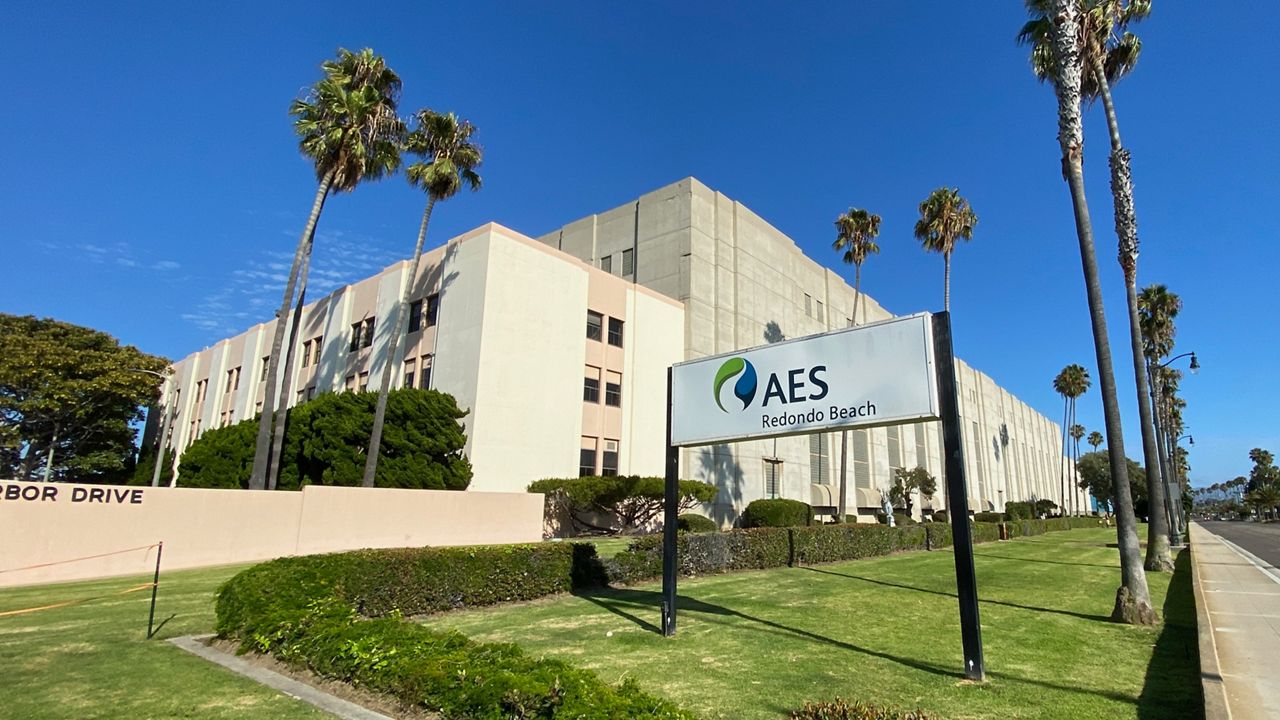The AES Redondo power plant, a long-landing source of consternation among residents of Redondo Beach and its neighbors, will continue to operate — at least in short bursts — until 2023, despite a decade-old promise to shut the plant down.
On Tuesday, California's State Water Resources Control Board approved an amendment to the state's policy to allow AES Redondo to stay open for at least one more year to mitigate power generation needs. The Redondo plant is projected to be used as a "peaker" plant, firing up when power is needed most across the grid.
The decision fell at the intersection of a handful of environmental and economic concerns. Once-through cooling plants, like Redondo, use ocean water to cool down power-generating turbines, treat that water, and cycle it back into the ocean.
Ocean water quality activists argue that such plants have long had negative impacts on sea life and ocean ecosystems (organisms are killed when drawn into and pinned against intake screens; generator-heated outflow, cycled back into the ocean, can spike temperatures when it reenters the ocean). Air quality activists note that the gas-fired plant belches black smoke into the sky when it runs.
However, proponents of the extension argued that closure of the plant would have a substantially negative impact on the lives of Angelenos across the region — without the plant's power generation in peak times, blackouts would roll across the grid during the hottest times of increasingly hot summers.
Blackouts have already come to pass: In 2020, California Independent System Operator, the body overseeing the state's power systems, declared Stage 3 emergencies last August; controlled rotating blackouts took place across the state those days.
In an SWRCB report published ahead of the meeting, there is a power shortfall expected for summer 2022; further projections, accounting for the loss of the Redondo plant, assert a shortfall for July and September.
Redondo's power plant has been slated for closure since 2010, when the state set policies for once-through cooling plants to shut down for good by 2020.
However, demands on the power grid — and an inability to procure electricity for the grid by state regulators — led to a one-year extension for the plant's operations, passed last year.
Redondo Beach has sought the plant's closure for decades and came close a handful of times within the last 10 years; most recently, energy company AES sold the plant to developer Leo Pustilnikov who discussed partnering with the city to develop open space and parkland on the 50-acre power plant site. State legislators secured a $4.6 million grant for the open-space deal to take place. But, as regulators extended the deadline on the power plant, that deal fell apart, and the state funds dried up. Pustilnikov struck a deal allowing AES to continue using the plant as long as regulators allowed it to remain open.
Although dozens of residents, elected officials, and otherwise interested parties spoke throughout the meeting, what seemed to sway board members most was the essentially unanimous recommendation by state agencies urging the continued operation of the Redondo plant.
"We always care about stakeholder input and information that we receive…but specifically what the board felt was important back in 2010 was to afford significant weight to that recommendation," said SWRCB Vice Chair Dorene D'Adamo. "It's really unfortunate, and I understand if I were living in the community, I'd want to say that was a one-year extension and that we have to promise that would never happen again…I hope that in the next report, we see that those extensions are no longer needed."



